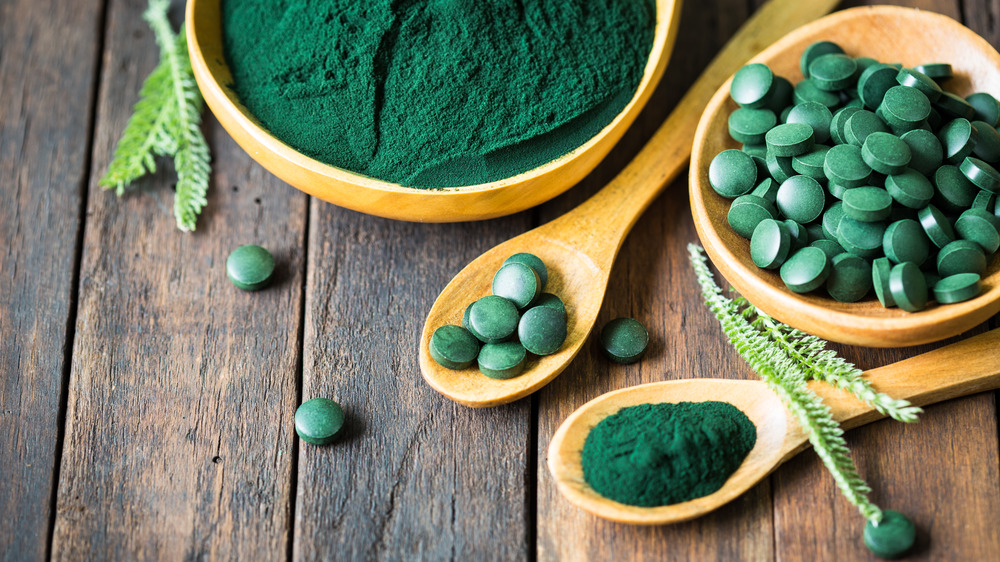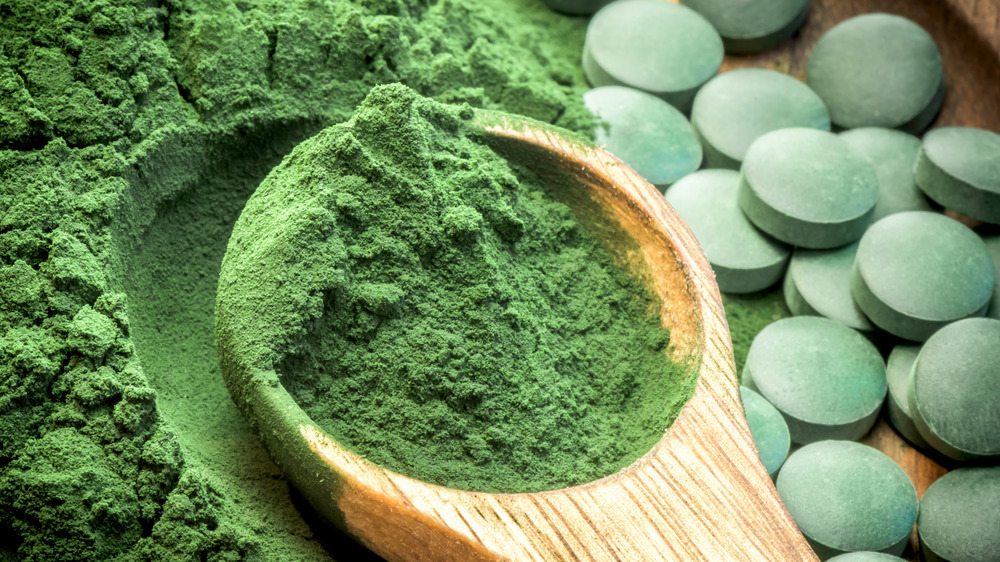This Unique Food Is One Of The Oldest Life Forms On Earth
With the need to reduce meat consumption becoming a top priority in the efforts to avert the worst of climate change, alternative sources of protein crop up regularly. One of these is spirulina, a type of blue-green microalgae that happens to boast a wide array of nutritional benefits.
Smart Microfarms, a company that helps install the microalgae systems needed to cultivate spirulina, dates the beginning of the life form's history back to 3.5 billion years ago, when algae of all kinds began to produce the oxygen that now constitutes our atmosphere. Before its rediscovery and the widespread popularity it now enjoys, spirulina was consumed by the Aztecs when Cortes invaded. Additionally, a report was published in 1940 that noted spirulina was made into cakes by the Kanembu people in the Republic of Chad.
Now, as Euractiv reported in October, spirulina has exploded in popularity. It requires 10 times less water than other crops, is able to photosynthesize more of the carbon dioxide we keep pumping into the air, and boasts a good bundle of nutrients that have inspired some researchers to test it as a food for space travel. Indeed, spirulina may prove to be more of a mainstay than a passing trend.
Spirulina is purely a supplement
Many extol spirulina as a superfood because, as The Ladders describes, one tablespoon of spirulina is stuffed with protein, vitamins B1, B2, and B3, copper, and iron. Even more exciting is that because spirulina comes either as a powder or a tablet, incorporating it into your diet is as simple as mixing it into a drink, though its bitter vegetable taste might need some masking with sweet fruits. "Algae tablets may be our last shot at being properly nourished," The Ladders asserts. "Nutrient-dense, toxin-free, plant-based, safe and sustainable. No cooking either. What's not to love?"
While spirulina certainly sounds impressive, Bon Appetit stresses that marketing often elides the fact that a regular person is unlikely to consume enough of it to replace protein sources entirely; you'd have to guzzle massive quantities of it to reach the same protein intake by weight. In the end, spirulina is a supplement, not a superfood in of itself. Though, as an added part of a healthy lifestyle, it's perfect.

